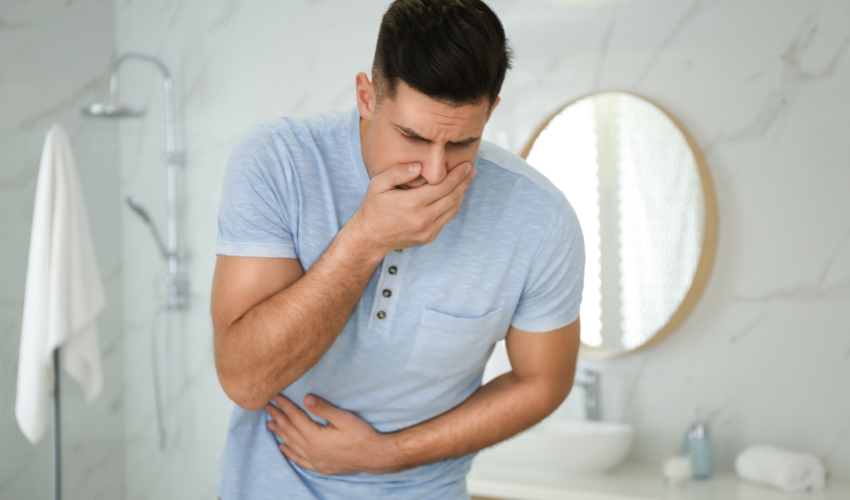Salmonella is a type of bacteria that can cause food poisoning and other health problems in humans. It is usually found in raw or undercooked meat, eggs, and poultry, as well as in unpasteurized milk and dairy products. Salmonella can also be found in fruits and vegetables that have been contaminated during harvesting or processing. In this article, we will discuss the symptoms of salmonella and what you can do if you suspect you have been infected.
Symptoms of Salmonella:
The symptoms of salmonella can vary from person to person, but they usually appear within 12 to 72 hours after exposure to the bacteria. Some of the most common symptoms include:
- Diarrhea
- Abdominal cramps
- Fever
- Nausea
- Vomiting
- Headache
- Bloody stools
- Chills
In some cases, people infected with salmonella may not experience any symptoms at all, but they can still spread the bacteria to others.

How to Identify Salmonella:
If you suspect you have been infected with salmonella, there are a few things you can do to confirm your suspicion. These include:
- Checking for the common symptoms of salmonella such as diarrhea, abdominal cramps, fever, and nausea.
- Contacting your healthcare provider if you are experiencing any of the symptoms mentioned above.
- Getting a stool sample test done to confirm the presence of salmonella.
If you have been diagnosed with salmonella, it is important to take precautions to prevent the spread of the bacteria to others.
Preventing the Spread of Salmonella:
To prevent the spread of salmonella, it is important to take the following precautions:
- Wash your hands thoroughly with soap and water before and after handling food.
- Cook food thoroughly to kill any bacteria that may be present.
- Keep raw meat, poultry, and eggs separate from ready-to-eat foods.
- Refrigerate food promptly.
- Clean and sanitize all surfaces that come into contact with food.
FAQs:
Can salmonella be fatal?
Yes, in some cases, salmonella infection can be fatal, especially in people with weakened immune systems, such as the elderly, infants, and those with chronic illnesses.
How long does it take to recover from salmonella?
Recovery time can vary, but most people recover within four to seven days without treatment. However, some people may need to be hospitalized if the infection is severe.
Can salmonella be transmitted through water?
Yes, salmonella can be transmitted through water if the water is contaminated with the bacteria.
Can pets spread salmonella?
Yes, pets, especially reptiles, can carry and spread salmonella. It is important to wash your hands thoroughly after handling pets, especially reptiles.
Can antibiotics be used to treat salmonella?
Antibiotics are not always necessary to treat salmonella. In some cases, the infection will go away on its own. However, antibiotics may be prescribed if the infection is severe or if the patient is at high risk of complications.

Conclusion:
Salmonella is a type of bacteria that can cause food poisoning and other health problems in humans. The symptoms of salmonella include diarrhea, abdominal cramps, fever, and nausea, among others. If you suspect you have been infected with salmonella, it is important to take precautions to prevent the spread of the bacteria to others.
To prevent salmonella infection, it is important to wash your hands frequently, cook food thoroughly, and avoid cross-contamination between raw and cooked food. If you are experiencing symptoms of salmonella, seek medical attention immediately to avoid complications. Remember that prevention is always better than cure, so take necessary steps to protect yourself and your loved ones from salmonella and other foodborne illnesses.






















